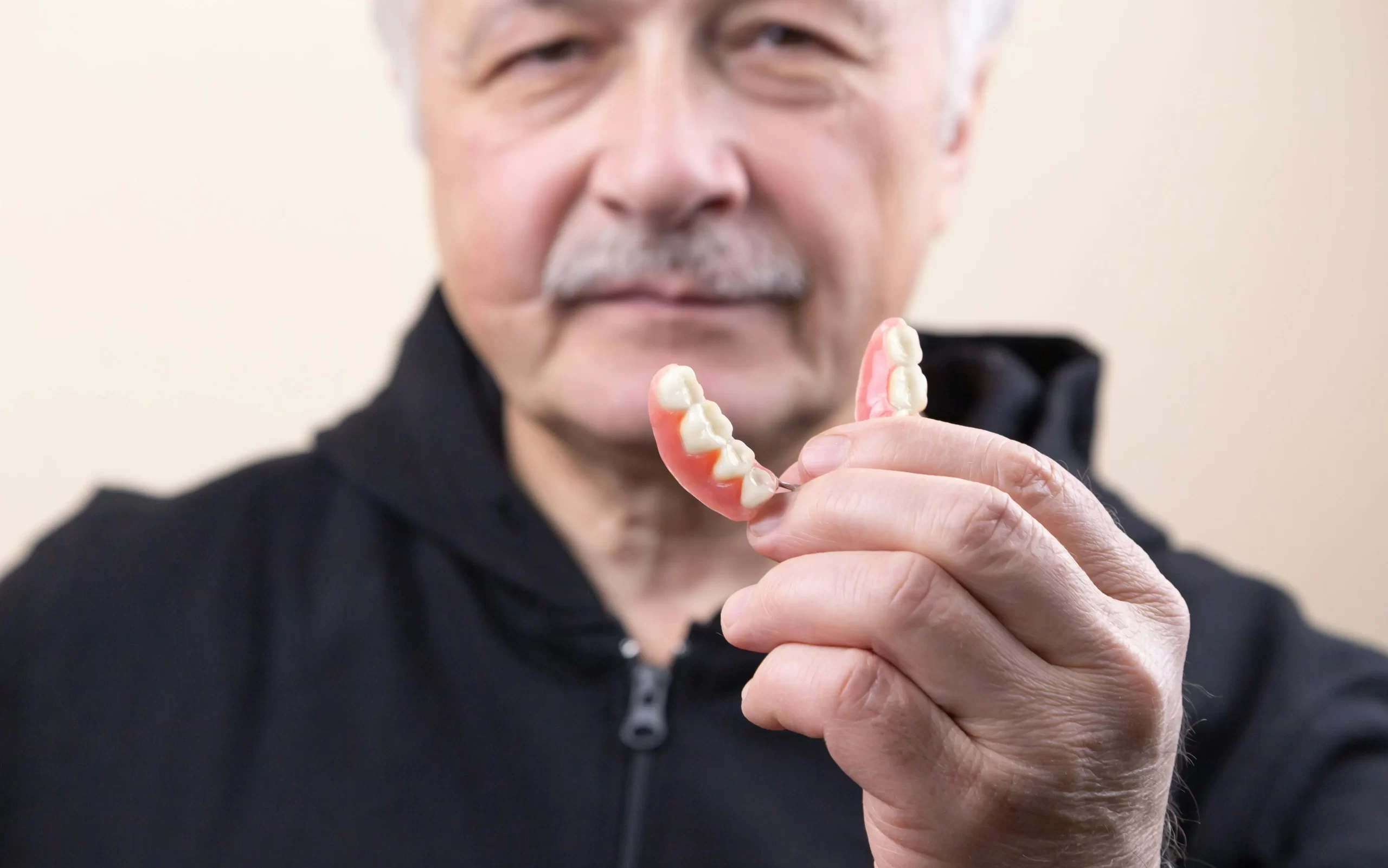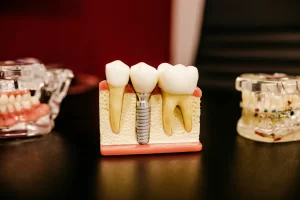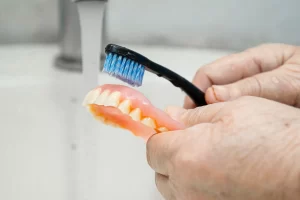Denture Options: What’s Available and How to Choose

Tooth loss is far more common than most realise, affecting people across all ages due to trauma, decay, or health conditions. Thankfully, modern dentistry provides various solutions to restore both function and confidence. Among the most accessible and versatile options are dentures. Whether you’re considering them for the first time or looking to upgrade your current set, understanding your denture options can help guide your decision.
What Are Dentures and Who Needs Them?
Dentures are removable dental appliances designed to replace missing teeth and the surrounding tissues. They’re a practical solution for individuals who’ve lost some or all of their natural teeth due to ageing, gum disease, injury, or tooth decay.
Dentures help:
- Improve chewing and speech
- Restore facial structure and smile aesthetics
- Support oral health by preventing remaining teeth from shifting
Whether you’re missing a few teeth or an entire arch, there’s likely a denture solution tailored for your needs.
Types of Denture Options Available
There are several types of dentures to consider, each suited for specific dental conditions and lifestyles. Understanding their key features can help you determine which one is most suitable.
Full Dentures
Full dentures are often used when all natural teeth are missing in the upper or lower jaw. According to the NHS, these prosthetics are designed to restore function and appearance while resting securely on the gums.
Two main types:
- Conventional Full Dentures – Placed after all remaining teeth are removed and gums have healed (typically a few weeks).
- Immediate Full Dentures – Inserted immediately after tooth removal. These are temporary and may need adjusting as the mouth heals.
Partial Dentures
Ideal for patients who still have some natural teeth, partial dentures fill in gaps using a metal or acrylic framework with artificial teeth.
Benefits include:
- Less invasive than implants or full dentures
- Easily removable for cleaning
- Prevent surrounding teeth from shifting
Implant-Supported Dentures
These modern alternatives combine traditional dentures with dental implants to create a more secure and stable fit. The denture clips onto implants surgically placed into the jawbone.
Advantages:
- Superior stability and chewing ability
- Prevents bone loss in the jaw
- Feels more natural
This option is particularly popular among those looking for a more permanent and functional solution. Dr Bobby Chhoker offers advanced dental implant treatments that pair seamlessly with implant-supported dentures.
Flexible Dentures
Made from a softer, more pliable material than traditional acrylic, flexible dentures are lightweight and bend to fit your mouth comfortably.
Pros:
- More comfortable for sensitive gums
- No metal components
- Blends naturally with your gums
However, they may not be suitable for everyone, especially if long-term durability is a concern.
Overdentures
Overdentures sit on top of remaining natural teeth or implants. They’re more stable than traditional full dentures and offer improved function.
Key benefits:
- Better retention and fit
- Reduced pressure on gums
- Can be removed for cleaning

Materials Used in Denture Construction
Dentures can be made from various materials depending on the type and your personal preferences:
Common materials include:
- Acrylic resin – Lightweight and cost-effective, but may wear faster
- Cobalt chrome – Stronger and thinner, often used in partial dentures
- Flexible nylon – Softer and more comfortable, used in flexible dentures
The choice of material can affect durability, aesthetics, comfort, and cost.
How to Choose the Right Denture Option
Choosing the best denture option depends on several factors, including your oral health, lifestyle, budget, and personal preferences.
Key considerations:
- Extent of tooth loss – Are you missing a few teeth or a full set?
- Jawbone health – Healthy bone is essential for implants
- Comfort – Some materials feel more natural than others
- Budget – Options vary in cost depending on complexity and materials
- Lifestyle – More active lifestyles may benefit from fixed or implant-supported dentures
Dental implants tend to have a higher upfront cost than traditional dentures, though they may save on long-term repairs and replacements (WebMD).
Caring for Your Dentures
No matter which type of denture you choose, proper care is vital for maintaining oral health and extending the lifespan of your appliance. (Healthline)
Essential care tips:
- Rinse dentures after meals to remove food debris
- Brush dentures daily with a soft brush and non-abrasive cleanser
- Soak dentures overnight in a cleaning solution
- Clean your mouth and gums daily
- Visit your dentist regularly for fit checks and maintenance
Improper care can lead to gum irritation, fungal infections, and a poor fit.
The Process of Getting Dentures
Getting dentures usually involves several appointments and steps:
- Initial Consultation – Assess oral health, take X-rays, and discuss options
- Tooth Extraction (if needed) – Remove remaining teeth
- Impressions and Measurements – Custom moulds are taken for a precise fit
- Trial Denture – A mock-up is created for fitting and adjustment
- Final Fitting – The finished denture is delivered and adjusted for comfort
- Follow-up Appointments – Ensure proper fit and function
Some people adapt quickly, while others may need a few weeks to get used to speaking and eating with their new dentures.
Common Challenges and Solutions
Adapting to new dentures can be challenging. Here are a few common issues and how to manage them:
- Sore spots or irritation – Use dental adhesives and consult your dentist for adjustments
- Difficulty speaking – Practise reading aloud to improve clarity
- Chewing problems – Start with soft foods and gradually introduce harder items
- Loose fit – Visit your dentist to explore relining or other adjustments
Final Thoughts: Making the Right Choice
Modern denture options offer far more flexibility, comfort, and stability than ever before. Whether you need a full set, a partial, or a more secure implant-supported version, there is a solution to fit your lifestyle and oral health needs.
At Dr Bobby Chhoker’s dental practice, patients receive expert guidance and tailored solutions designed to restore both form and function. With a focus on innovative techniques and compassionate care, every step of the journey is handled with precision and attention to detail.
If you’re exploring your denture options, don’t leave it to guesswork. Book a consultation with Dr Bobby Chhoker to discover the best path forward for your smile and comfort.

